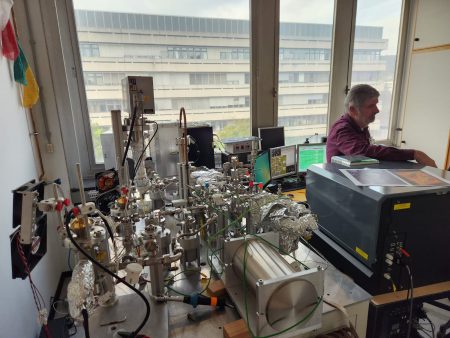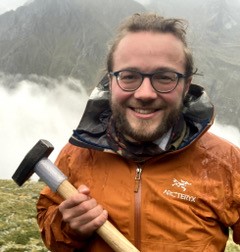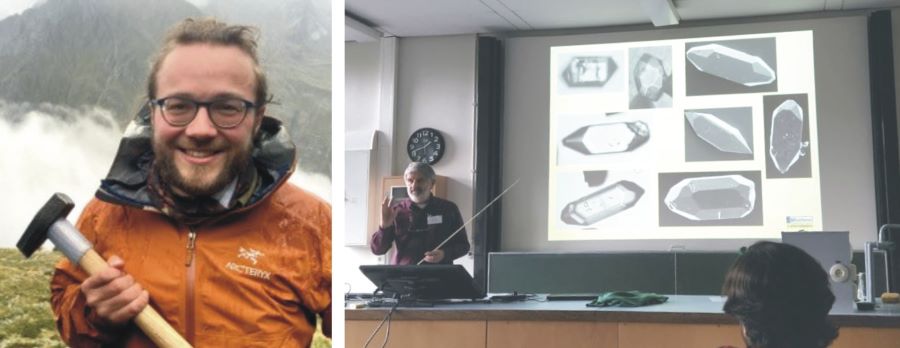
EAG Sponsored Student Dominic Hildebrandt reports back from the Sedimentary Provenance Analysis Short Course
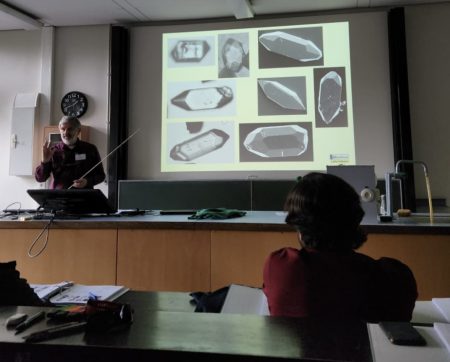
From 25 to 29 September 2023, I had the privilege of participating in the Sedimentary Provenance Short Course, organized by the Department of Sedimentology and Environmental Geology at the University of Göttingen. This international short course has run on an annual basis since 2011. I first became aware of this international event in 2020. However, due to the global pandemic, it underwent a two-year hiatus. In 2022, my Master’s field course coincided with the short course dates, making it impossible for me to attend. Fortunately, in 2023 I finally managed to participate in the course.
I was always fascinated by the simplicity of the basic idea of provenance analysis: telling the geologic history from a grain of sand. – Well, to be honest, it’s way more complex, but in fact the fundamental concept of provenance analysis, using characteristics of reworked rocks to constrain their source region and the geologic processes occurring there, is both simple and powerful. During my Bachelor and Master studies there were no courses that covered provenance analysis specifically, but I learned about many tools that are useful to apply in provenance studies. When I joined the short course, my primary expectation was to gain a deeper understanding of how to apply and integrate these tools with specific objectives in mind, such as deducing exhumation histories and reconstructing paleogeographic configurations. Furthermore, I saw that data processing and analysis, in particular of geochemical data, will be a central focus of the course. Apart from those motivations, I have really enjoyed previous short courses and summer schools, which are amazing opportunities for early career scientists to meet both senior experts in the field and younger colleagues in the same career stage. One can learn about their research in poster sessions and just enjoy chatting about cultures, food, politics and more during the coffee breaks or when enjoying a cold drink together in the evening.
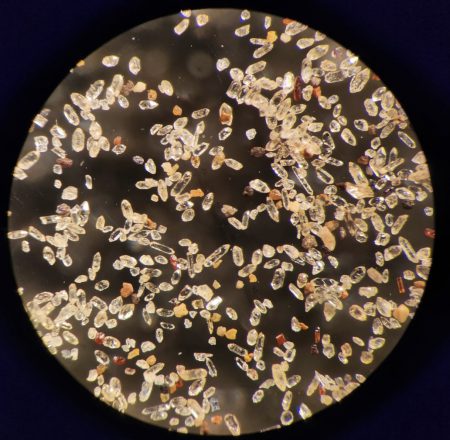
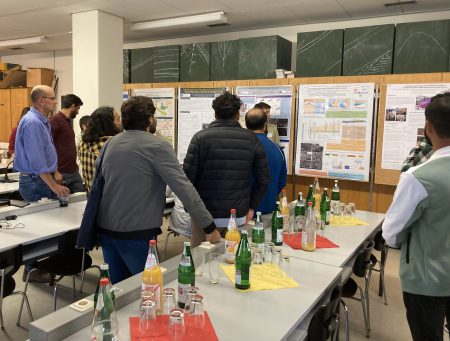
I particularly appreciated the diverse group of people from 15 countries participating in the course and making new connections with them, for instance during the Icebreaker party at the institute during the first evening or while enjoying a Schnitzel in one of the restaurants in the charming old town of Göttingen later on. My expectations with regard to the course contents were completely fulfilled. I was especially happy to learn some of the pitfalls related to provenance studies, for instance regarding diagenetic alterations of primary depositional signals. This even triggered some new thinking about results from my Bachelor thesis. A highlight was the insight I gained into current leading-edge developments in combining Raman spectroscopy based identification of detrital grains with machine learning by the group in Göttingen! I also enjoyed the lab tours, which took place during two evenings of the course week.
I can absolutely recommend participating in this course. The deadline for registering for this year’s course was in May and can be found on the course website. Göttingen is a nice and vibrant university town, which is easily reachable by regional and long-distance trains. I am very thankful about having received generous support by the EAG to attend this event and I can only recommend other students to use such valuable opportunities to meet new people, learn about other academic and non-academic cultures and actively enlarge one’s scientific horizon.
